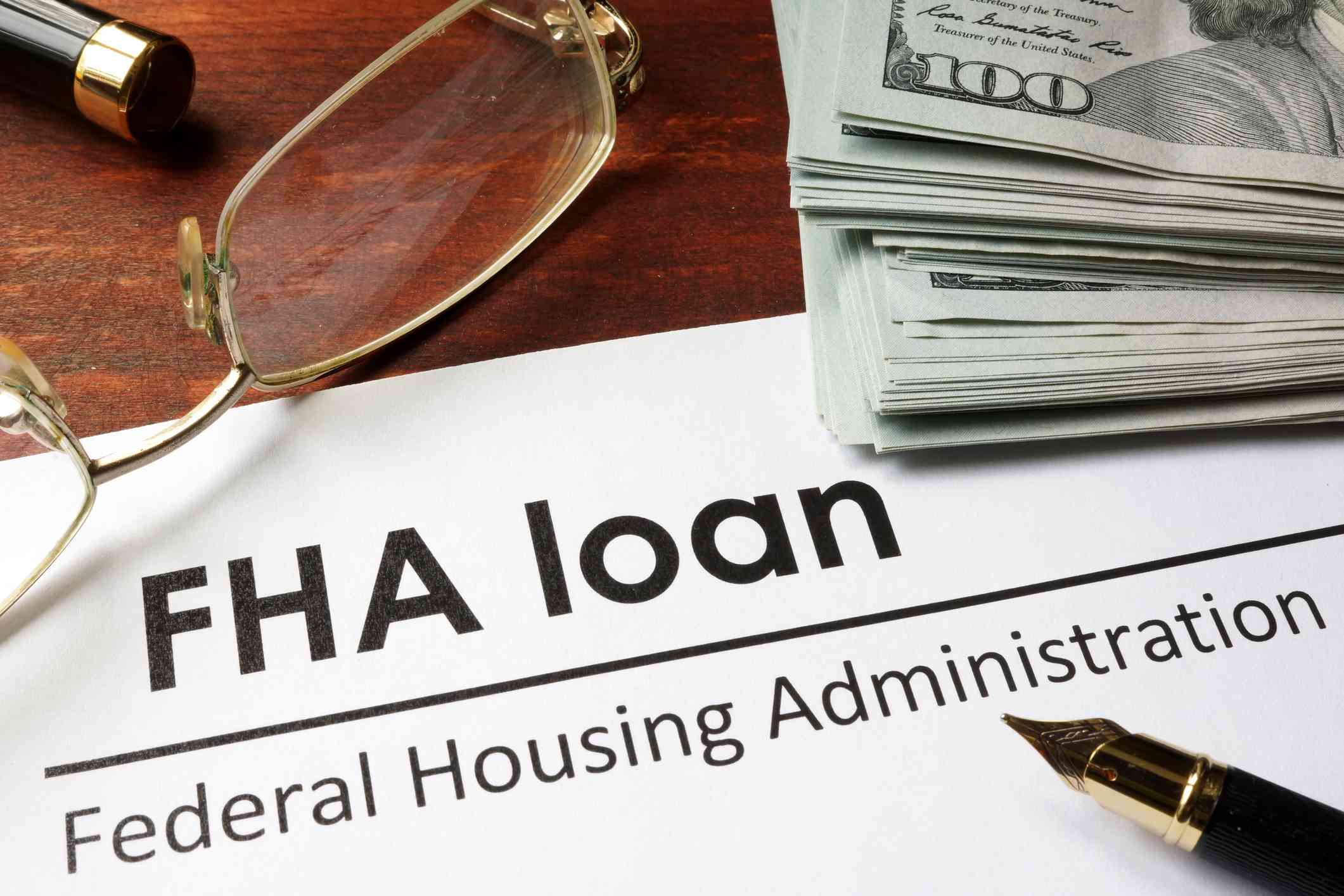How will the Nebraska housing market change in an economic downturn? The economy looks like…

How do I qualify for an FHA loan in Nebraska?
The Nebraska FHA loan program is an excellent option for buyers with less than perfect credit or limited funds. Often buyers who think they will not qualify for home financing fit into the FHA loan guidelines. Let’s dive into some of the reasons and rules for for an FHA loan in Nebraska.
Qualifying for a Nebraska FHA loan will require a minimum credit score of 580 and a maximum Total Debt to Income ratio of 56.99%. FHA will require a minimum of 3.5% of the purchase price in down payment. If you do not have the 3.5% down, FHA will allow a family member to gift the cash needed.
FHA credit requirements
The great thing about the FHA loan program is it is much more forgiving on credit scores. In some cases they will allow a score as low as 580. However, I highly recommend working with a loan officer and credit restoration expert to get your scores up to at least a 620. A 620+ score is going to greatly improve the rate and cost of an FHA loan. Just like other loan programs, FHA loans consider a 740+ score to be “perfect credit”, but at these higher scores it is usually better to go with conventional financing. If you scores are below 700 FHA starts to look like the more attractive loan option. Once you get into the mid-600s it can start to become the only loan option for many buyers.
FHA credit history
The FHA loan program is not a first time home buyer program. However, it is often used by first time home buyers because the FHA rules on credit history are less strict than conventional financing. FHA will allow a “thin” credit history or, in some cases, no credit history. If you have no credit history and no scores (called a “true no score”) you may still qualify for FHA financing. FHA will use “non-traditional credit” to qualify a buyer will little or history. Non-traditional credit is anything you pay monthly that does not appear on your credit report. This can be rent, insurance, utilities, or cellphone. If a buyer with no credit history can show 12 months of on time payments on three of these accounts, they may still qualify for home financing.
Chapter 7 and Chapter 13 bankruptcy
If you recently had a bankruptcy FHA financing is usually the only option. FHA has shorter wait time after a bankruptcy than conventional. It will allow the lower scores that typically come with a BK. With a Chapter 7 bankruptcy you can qualify for FHA financing 2 years from the discharge date. You will still have to meet all credit and debt requirements as well. For a Chapter 13 you can actually qualify for financing while still making payments on your bankruptcy as long as you have 12 on time payments, the court approves the new mortgage debt, and you meet all FHA requirements.
If you recently had a bankruptcy it is a good idea to discuss options with a mortgage lender early and possibly pre-underwrite the file to make sure you meet all FHA guidelines.
Foreclosure
If you had a foreclosure in the past, FHA is likely the best option to become a home owner again. The wait time for FHA is 3 years after a foreclosure. It is important to remember that FHA considers the end of the foreclosure to be the date the bank took ownership. This is important because it can sometimes take the bank several months after the foreclosure is finalized to take ownership.
For buyers with recent bankruptcies or recent foreclosures, FHA is going to scrutinize the file a bit more so we need to make sure everything is reviewed early in the home buying process.
Judgments
Most loan programs require judgments to be paid off before lending to a prospective buyer. FHA does require judgments to be paid, but they also provide an alternative. If you set up the judgments on a payment plan, FHA will waive the pay off requirement. The payment plan will have to show 3 on time monthly payments and we will have to add those payments to your debts. As long as you qualify with those new debts you can get home financing without paying off active judgments. Because we need 3 month payment history, you will need to get that started well before looking at homes to purchase.
FHA is the way to go for buyers with less than perfect credit
If you think you have less than perfect credit let’s look at the FHA option. The FHA program is a great option to start home ownership. My team and I will continue to monitor your mortgage after close and look for opportunities to get you out of the FHA loan and into a conventional loan in the future.
FHA income and debt requirements
FHA allows much higher debt to income ratios than conventional financing. While conventional limits ‘Total Debt Ratios’ to 50%, FHA allows debt ratios up to 56.99%. Your ‘Total Debt Ratio’ is a combination of the new home payment and all monthly payments showing on your credit report. For buyers looking to increase their max purchase price, FHA is a great option.
Won’t people buy “too much house” with FHA?
I think affordability needs to be covered before going into income requirements. Since FHA allows higher debt ratios it does bring up the question “Won’t people buy more house than they can afford?” and this is something to look at. Since FHA is used by a lot of first time home buyers, it is important that they know all the cost that go into home ownership. But there are legitimate reasons someone would have high debt ratios and still afford the new mortgage payment. First the income used to qualify a buyer is not always all of the income a buyer is actually receiving. Also there are situations where not all income earners in a household are on the loan. Self-employed buyers may claim a lower income on their taxes. These are just a few reasons a high debt ratio is not an indication of inability to pay.
How FHA income is calculated
FHA calculates income pretty much the same way conventional and VA calculate income. For a detailed break down of how income is calculated go HERE. I will briefly go over them here.
W-2 income
This is the easiest one for all home loans. If you are an hourly or salary W2ed employee we just need to calculate your gross monthly income based on yearly salary or hourly pay. There is a bit more to dive into if you receive commission, bonus, or overtime. For these we will need a two year average since these types of income can vary. If you do not have a two year history of commission, bonus, and overtime we will likely only be able to use your base pay.
Self-employed income
This is where sitting down with a local loan officer can be a huge benefit. Self-employed buyers will require a two year history of self-employment and we will use a two year average of your adjusted gross income. The tricky part is in the little details. We will take your after write off income, but there are some items we can add back in. The most common is depreciation, but depending on how you do you taxes will determine what can be added back to income. If some of the debts on your credit report are paid through the business we can possibly remove them from the debt ratios as well.
1099 contract employment
If you are paid as a 1099 contract employee (Uber driver, sub-contractor, consultant, etc) your income will be treated just like a self-employed buyer. We will need a two year history and will use the adjusted gross income (after write off profits and income).
One disadvantage of FHA over conventional…Student loans
The rules on student loans are constantly adjusting. Fannie, Freddie, FHA and VA are all trying to find the right balance on home lending with student loans. On the one hand they need to make sure buyers are not loaned more than they can pay back. On the other hand they need to make sure recent graduates have the opportunity for home ownership. Currently the rules on FHA are a little more strict on student loans than conventional financing. Conventional loans will use the current payment showing on the credit report. For buyers with “income based” repayment plans, this could be a small monthly payment compared to the balance. FHA however requires a fully amortized payment or, and this is more typical, a 1% of the balance as payment. If you have a $250,000 student loan, the payment used by FHA is $2500.
The student loan issue can be complex. Many buyers are not currently making payments on their student loans, but that does not mean we can leave out a payment. Many buyers with large student loan debt can be left out of home buying due to student loan balances…Even if they have no payment.
FHA’s higher debt ratios for even buyers with less than perfect credit is a great opportunity for new buyers or buyer with unique income situations to get into a home. The goal should be to eventually move out of the FHA and move into a conventional loan. As your life changes we will make sure your loan program changes.
FHA assets requirements
For most asset verification FHA is similar to conventional and VA. We will document liquid assets and any large recent deposits into your account. Just like conventional and VA, there are approved and unapproved sources for the cash needed to close.
Liquid assets
Your assets must be liquid to use them. The equity in property cannot be used unless you are taking a loan out against it. Retirement funds can only be used if the terms of your retirement account allow you to withdraw the funds even if there is a penalty.
Secured loans
You can take out a secured loan for the cash to close on FHA (and most loan programs). This can be a car loan or, and this is most common, a loan on another home. It is common for buyers with an existing home to take out a line of credit, bridge loan, or a cash out refinance to get the funds needed on the new home.
Gift funds
FHA allows a gift to be used for the cash needed at close. Gift funds on an FHA loan are common because the program is used so often by buyers with little of their own funds to contribute. Now before moving forward with the gift it is important the buyer and the donor know how the gift funds will be documented.
The easy part is the gift letter. The buyer and donor must sign a letter stating the funds are not a loan and the buyer does not have to pay the money back. We will paper trail the funds moving from the donor to the buyer. The final requirement is usually the part where donors get a little wary. The donor must provide a 30 day transaction summary of their account showing the gift funds coming out. Many donors can get upset when asked for such personal information. It is important that we know there will be a gift early so we can have a conversation with the donor and explain the process.
The reason FHA requires account information on the donor is to make sure the donor did not get the funds from an unapproved source. Once we tell the donor this it usually starts to make more sense.
Unapproved asset sources
This is the reason all loan programs dig into your financial history. Their rules state that we need to make sure your assets came from approved sources…So what are the unapproved sources?
Unsecured loans
You can take out debt to get your cash to close, but only in very limited situations. For the most part you cannot take on new debt to cover the rest of the cash needed above your mortgage. No credit card cash or unsecured installment loans from your local bank. This should seem pretty obvious because FHA wants to see that you have some “skin in the game”.
Gift from someone outside your immediate family
As we covered above, you can get a gift from a family member to cover your cash needed at close. However you cannot get a gift from anyone outside your immediate family. The gift letter ask that you list your relationship to the donor and a friend, co-worker, or good Samaritan are not going to work for FHA.
Cash!
For an FHA loan, cash is not king. Lenders do not like cash. Cash cannot be traced so FHA does not know if it came from an approved or unapproved source. If you have cash at home get it into the bank as soon as possible and we may have to wait the 60 days so that we do not have to submit a bank statement showing that cash deposit.
For the few months before a home purchase, and the month while you are under contract, it is best to not make any large movements. Do not move large amounts of money and, if you must, let the loan officer know first. Also do not make any job changes before or during the loan process. Now sometimes a job change is necessary. If that is the case, just let you loan officer know so they can document it.
If you are concerned about qualifying due to income, credit or assets an FHA loan could be a great option.
One advantage of living in Nebraska (it is not the weather) is the low home prices compared to the rest of the country. One limitation on FHA we did not discuss is the loan limit. FHA is limited to a loan amount of $331,760, which can be an issue in many parts of the country. For many parts of the country even a starter home cost well above $330,000. However, Nebraska has a median home value of $179,000 so most homes will fit in this FHA restriction.
If you still think you might not qualify, we still recommend contacting a local loan officer. Getting an idea of where you are at on your credit, income, and assets will allow us to create a plan for home ownership. We can get you in credit restoration programs and give you some guidance on co-signers or gift funds. We are located in Nebraska and can consult you through the process.




